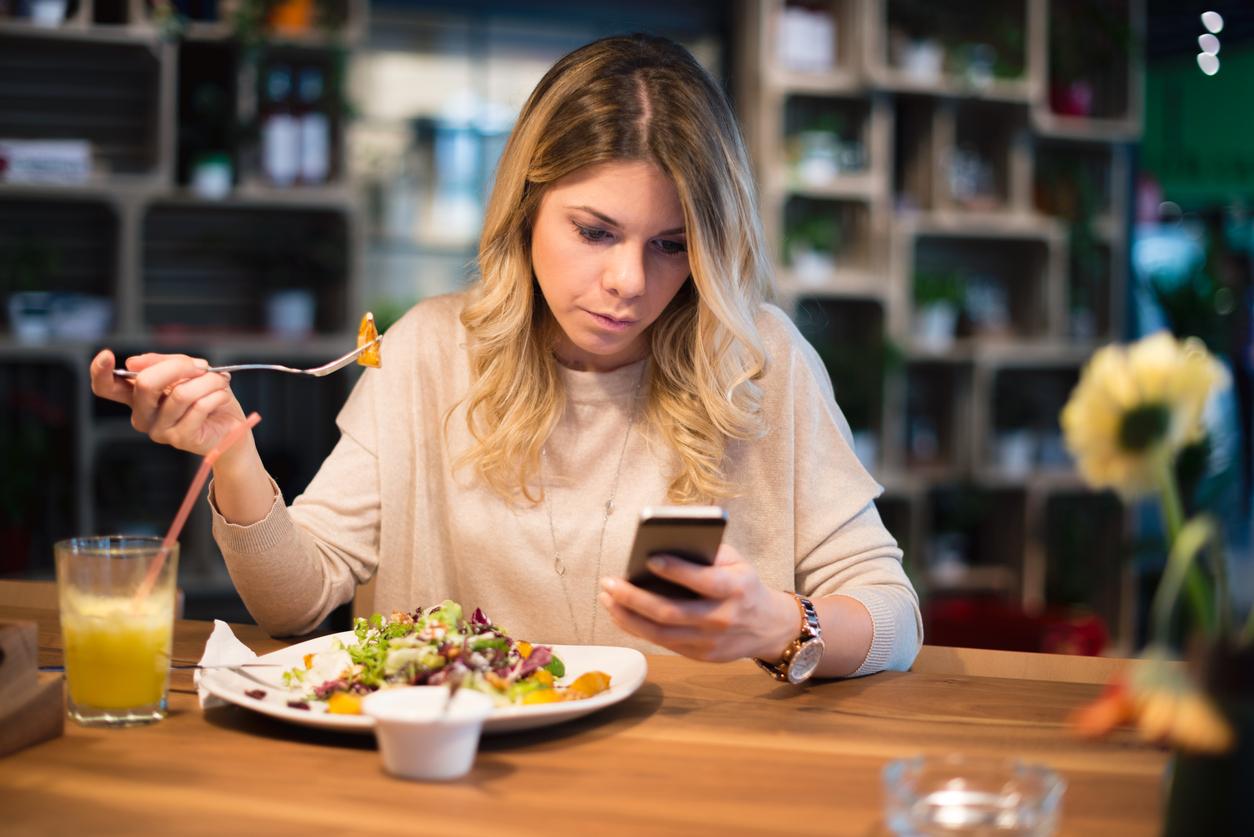Eating alone could be making you unhappy, finds study
Enjoying your food with good company could be the answer

Eating alone is one of the biggest causes of unhappiness, new research suggests.
As part of Sainsbury’s Living Well Index, developed in partnership with leading researchers Oxford Economics and the National Centre for Social Research, the retailer surveyed more than 8,000 British adults to investigate how people can live better day-to-day.
However, the data gathered inadvertently revealed that the mood of the nation has declined over the last six months with a drop of 0.5 points to an average of 60.7.
While much of the drop appears to be linked to seasonal factors such as extreme weather and public transport chaos, the index discovered more surprising reasons for people’s unhappiness.
Interestingly, it found that eating meals alone is more strongly associated with unhappiness than any single factor other than having a mental illness.
In this case, people who ate by themselves scored 7.9 points lower than the national average, compared with someone who always eats in company.
Mental health was found to have the strongest negative association with wellbeing, with those who reported conditions such as anxiety, depression, panic attacks or compulsive behaviour scoring 8.5 points below the average figure.
Other issues associated with unhappiness included limited physical mobility where participants scored 5.4 points lower, while people with a learning disability scored 3.7 points lower.
Conversely, eating with others had one of the highest positive associations with wellbeing with a score 0.22 points higher, alongside having enough time to do things (0.36), a satisfactory sex life (0.44 higher) and sleeping well (0.93 points higher).
As such, the researchers say their findings highlight the importance of face-to-face contact with improved happiness.
This is because other forms of social contact, including talking to neighbours and meeting with friends and family in person, were associated with higher happiness scores, while text messages, e-mails and other digital interactions such as social media, showed no association at all.
“The quality of our relationships and spending time together physically, not digitally, can go a long way towards improving how well we’re living: nothing beats the power of simple human interaction,” said Mike Coupe, group chief executive officer at Sainsbury’s.
“Instead of adding to our day-to-day pressures with numerous digital interactions, we should make time to get together, eat together and share together.”
Join our commenting forum
Join thought-provoking conversations, follow other Independent readers and see their replies
Comments
Bookmark popover
Removed from bookmarks